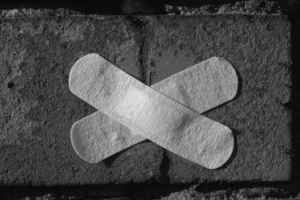Stop Blaming, Avoiding, Distracting: Explore
In order to cope with negative thoughts and emotions we tend to respond with blame, avoidance and distraction, when…
Ways We Try to Cope
In order to cope with negative thoughts and emotions like anger, jealousy, sadness, shame, guilt, anxiety and fear, we tend to respond with blame, avoidance and distraction, when what we really need is to be curious and explore our thoughts and feelings with patience and compassion.
Blame
When we blame ourselves for feeling bad, by thinking something’s wrong with us, we experience more guilt, shame and low self-esteem. When we blame other people (or the situation) for our feeling hurt and disappointed we’re likely to become angry and resentful. This kind of response tends to make things worse.
Avoid
We avoid our feelings by avoiding the people and things we believe make us feel that way. This may mean avoiding certain people, places, conversations and activities. Sometimes this presents a realistic solution to the outer problem, and if we manage to avoid the things that disturb our mind, it can give the illusion that we’ve overcome the inner problem too. Avoidance however, often leads to missing out on opportunities and puts limits on intimacy within our relationships due to poor communication.
Distract
Anything we do with the conscious or subconscious intention of avoiding our thoughts and feelings is a form of distraction. We often use work, exercise, sex, drugs, TV, food and so forth as a means of ‘keeping busy’ and avoiding ourselves. When we become dependent on these things to feel good, and if we feel a strong compulsion to engage in these activities or experience intense anxiety or frustration when unable to, we enter the realm of addiction.
Explore
The reason we haven’t come to an ultimate solution to our negative thoughts and emotions is because we’re too scared to sit with them. Blame, avoidance and distraction are all reactive patterns arising from our fear of feeling our feelings. Counselling, like meditation, involves turning our attention towards these thoughts and feeling with curiosity. By learning how to “be with” your thoughts and feelings, and how to challenge your assumptions and beliefs, you will discover more effective ways of relating to yourself and others. In this way we can break the habit of blame, avoidance and distraction and cultivate instead, the curiosity, patience and compassion that will lead to lasting change.
Try it For Yourself
- How often do I blame myself for feeling bad?
- How often do I blame other people for my feeling bad?
- How often do I try avoiding the people and things that trigger me?
- How often do I engage in activities to distract myself?
Consider making this affirmation, “whenever I feel bad, I will do my best to recognise the patterns of blame, avoidance and distraction. On seeing this I will pause and take a breath. I will turn my attention inward with curiosity and love”.
Recent Posts

How To Set Achievable Goals
This guide explains how the do’s and don’ts of setting goals. With this short tutorial, you’ll be accomplishing one goal

Stop Blaming, Avoiding, Distracting: Explore
In order to cope with negative thoughts and emotions we tend to respond with blame, avoidance and distraction, when… Ways

Why You Fear Abandonment
If our caregivers were inconsistent, we’ll be more likely to distrust other peoples’ feeling for us and fear abandonment… What

How to Heal Your Core Wounds
Core wounds are feeling of hurt that takes the form of negative beliefs, like “I’m not good enough”… Primary and

Healing Your Inner Child
As children we don’t recognise that our parents have their own issues which have nothing to do with us… A
